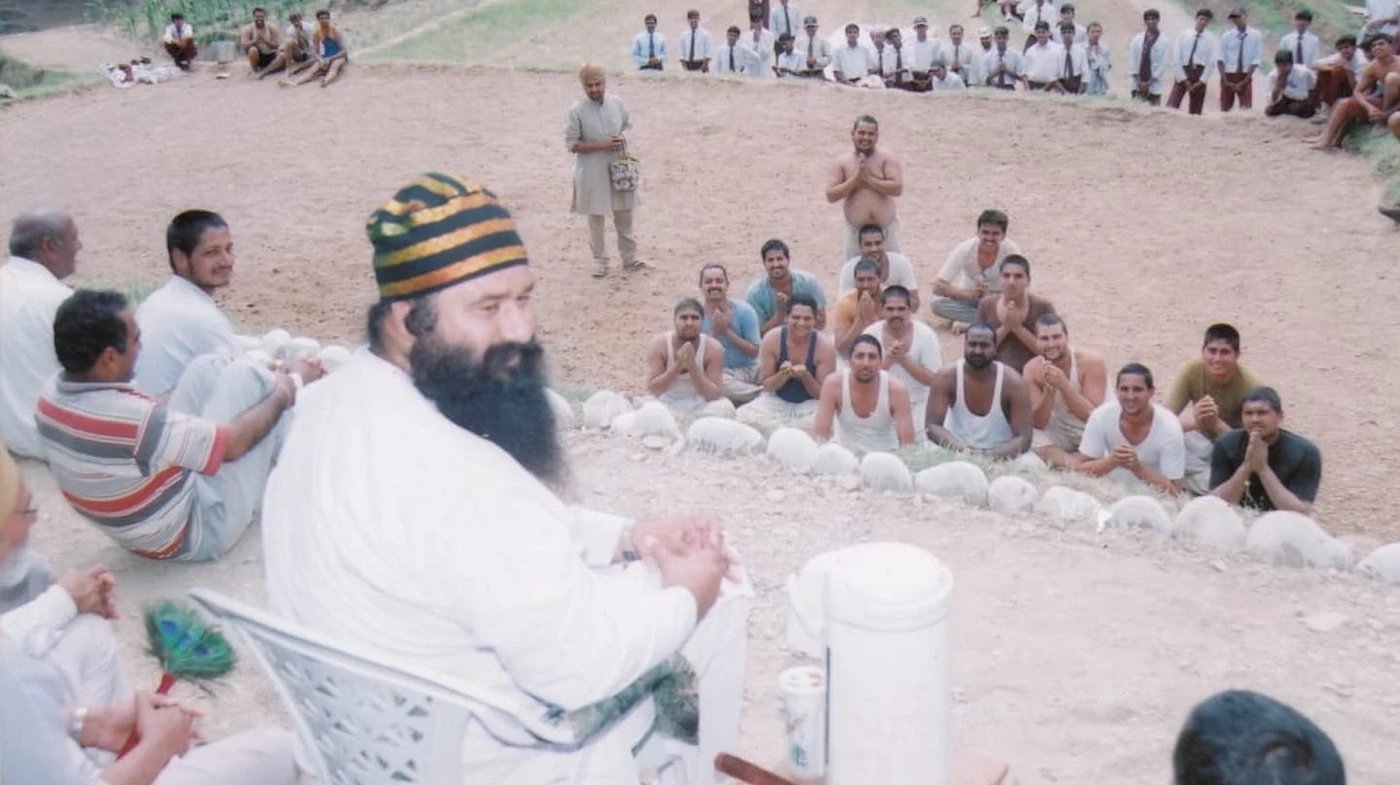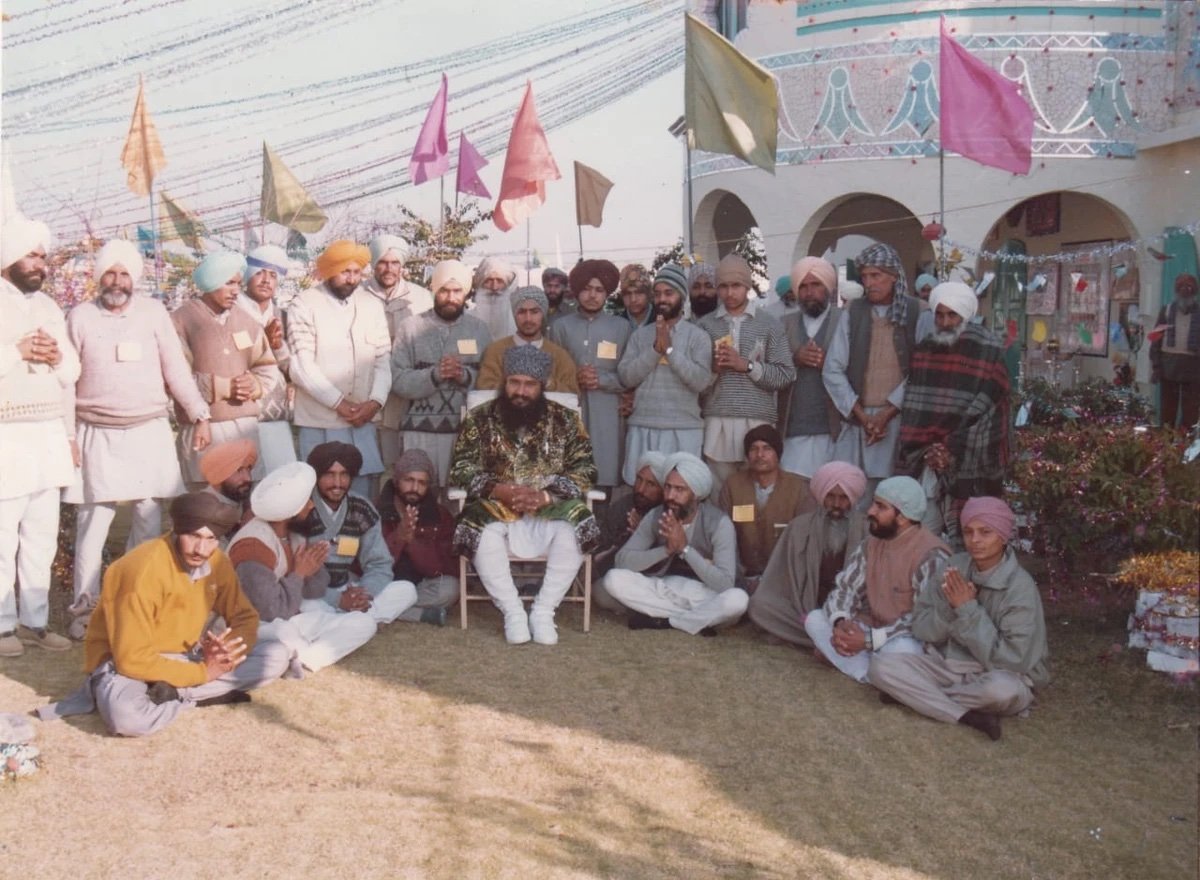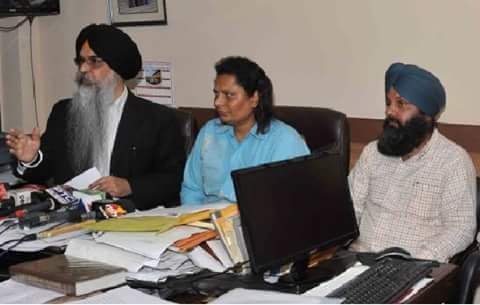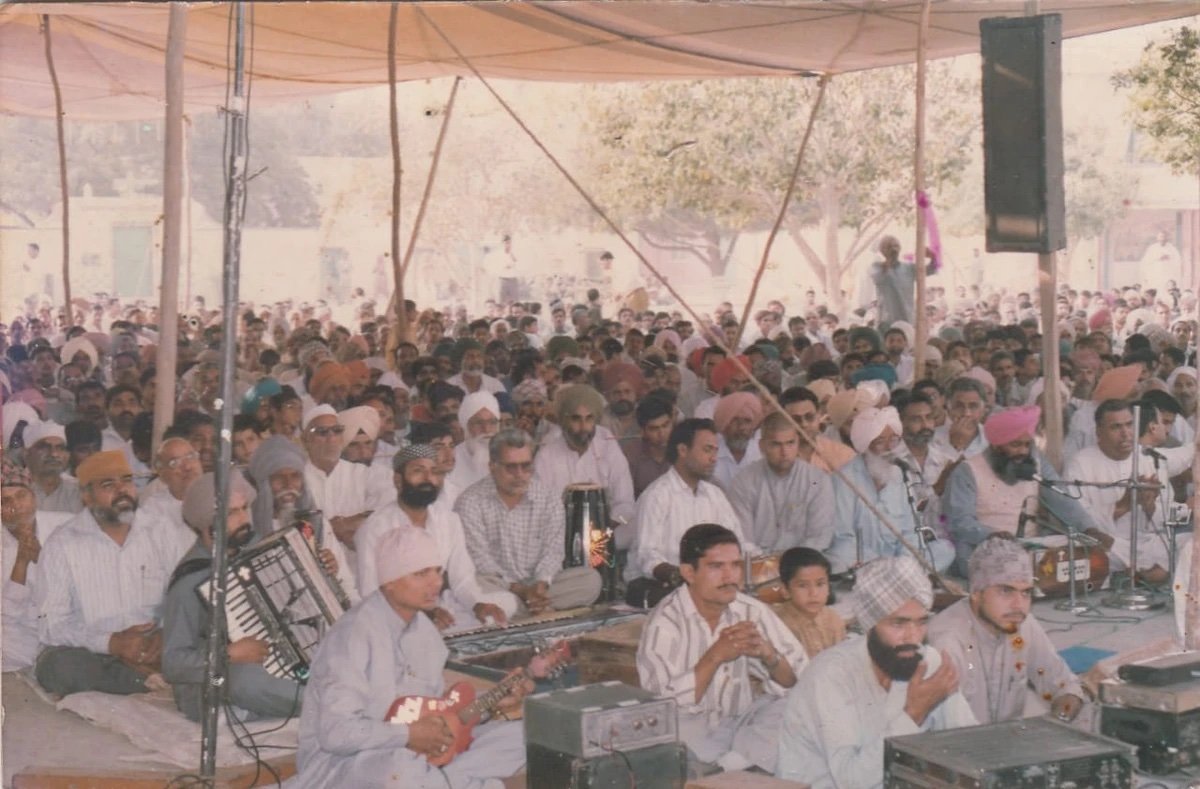
‘I Joined a Cult Believing I’d Be Closer to God. Then, I Was Castrated.’
It was 1985.
Hansraj Chauhan, whose father was a mechanic and mother, a housewife, was 6 when his parents introduced him to a local religious group in the village of Tohana in the north Indian state of Haryana. His family had ties with the dera, or a local religious camp, where they went to offer prayers and service to the spiritual leader for nearly 50 years.
“I was a child,” Chauhan, now 42, told VICE. “All I used to do was chant a few words every day, and that’s about it.”
When he was 13, Chauhan said he was “spotted” by two members of another dera called Dera Sacha Sauda. “One can call it brainwash, in a way,” he said. “They slowly roped me in, starting with involving me in seva (service) like cleaning or serving in the canteen.”
Chauhan still went to school, and he developed an interest in music. He was eventually put in charge of the sound system inside the dera. Here, devotees were made to swear off alcohol, meat, marital infidelity and lying. The Dera Sacha Sauda also volunteered for welfare and disaster relief activities. To the outside world, it seemed like a pretty standard life devoted to a religious cause.
Then, when he was 16, two followers from the dera took Chauhan to their leader, a pudgy man with a thick, wild beard and beady eyes. “Those men told guruji that I have the capabilities to live inside the dera,” said Chauhan.
The guru went by the name Huzoor Maharaj Gurmeet Ram Rahim Singh Insan. His real name was Gurmeet Singh.
“That was my introduction to him, and I was inducted as a young sadhu (priest),” said Chauhan. “My devotion just grew in that environment, where we looked at him as God, and were made to believe everything about him was divine. Even the language we were to use to refer to him was full of God-like reverence. Many like me had internalised it.”
And then he added after a pause: “I had no idea of the kind of monster he really was.”
Dera Sacha Sauda, which started off as a religious and non-profit social welfare group in 1948, is one of the most controversial cults in India. It claims to have 60 million followers from across the world. Its headquarters, located in the city of Sirsa in the northern Indian state of Punjab, is a sprawling township in itself, with houses for its followers, schools, a hospital and even a movie hall in its vicinity.
But it was Singh – called the “bling baba” or the “godman of bling” because of the ostentatious clothes and jewellery he always wore – who stood out. Singh was not just a self-proclaimed godman, but also a musician, an actor, a fashion designer, a scriptwriter (he wrote and starred in MSG: The Messenger of God) and a sportsman, although his talent in these creative fields is highly questionable. Indian Prime Minister Narendra Modi once praised him for his social work.
In 2002, two women sent an anonymous letter to the Indian prime minister at the time, Atal Bihari Vajpayee, stating in detail how Singh – a man his devotees called “guruji (teacher)” or “pitaji (father)” – had raped them. In a series of investigations, news outlets reported how Singh created a harem of sorts, wherein he would have sex with his female devotees and afterwards, some would be married off to male devotees within the dera. The rape by Singh was referred to as “maafi” or an act of pardon. The accusation blew the lid on a series of other serious allegations.
It took the government 15 years to convict Singh of rape, after which he was sentenced to 20 years in jail. His arrest for rape in 2017 led to deadly violence across north Haryana, which killed at least 30 people and left over 200 injured. That same year, investigators found a “sex cave” – a private area in Singh’s personal residence where women and children were allegedly sexually exploited – and mass graves at his headquarters.
In 2019, he and three of his followers were convicted of murdering a journalist in 2002. The cult leader is now serving a life sentence for it.
Singh was later sentenced to yet another life term in prison for murdering an employee. He was also ordered to pay a fine of Rs 31 lakh ($41,355) to the victim’s family.
In 2014, Chauhan came out to the world with his own allegations against Singh that triggered an investigation and an ongoing court case. Chauhan said he was castrated when he was 20 years old, without having been properly informed about the surgery, how it was to be performed, and its repercussions.
He still remembers the first time he heard about the “operation,” back in 1999.
It started off with an “experiment” on a horse. The horse died three months after being castrated – a timeframe that was somehow deemed safe enough to continue the experiment on humans.
“I, along with other priests, used to hear of operations from other senior management of the dera. These men would claim they’re going for an operation, and when they came out, guruji would hug them, there would be fanfare, and he would give them his personal belongings as gifts, like they were special.”
For a long time, Chauhan had no idea that these “operations” were actually castrations. “All I was told is that I will be closer to God after that, that my heart will be completely devoted to him, and that it was just a small operation,” he said. “A lot of things were hidden. But we didn’t question this because our faith was blind.”
Chauhan recalled how around 400–500 men went in for these surgeries in 1999. “We later found out that some of those men in the upper management were instructed to talk highly about the procedure, about how it brought them closer to God, and how clear the world looked to them after. They didn’t mention the medical side of it at all.”
And then, when Chauhan accompanied Singh on a trip, Singh asked him to visit the doctors from the dera and tell them that the guruji had told him, “Tum par rehmat ho gayi hai (You’re being blessed).” Chauhan was 17.
When Chauhan went to the hospital, he said he found 20 other men and boys – some were minors – awaiting their turn to be operated on, too. Chauhan recalled he was handed a bottle of spiked Pepsi, which numbed his senses. “But I could still figure out what was happening to me,” he said. “They then gave me an injection on my private parts. But I was so out of it that I couldn’t even object.” When the surgery started, Chauhan threw up and then passed out.
The next morning, when he came to, he had excruciating pain in his genital area. “It was like someone was ripping my insides out,” said Chauhan. He knew something was wrong. Three days later, when a medical assistant removed his bandages, Chauhan looked down. “I didn’t have my testicles. They were gone,” he said. “That was the moment my love for guruji also died. I knew I had to leave. I had been wronged.”
Chauhan said he couldn’t leave immediately because the recovery took a while. He also heard whispers about a few men in the dera who resisted and were killed. In a previous interview with The Quint, Chauhan alleged that Singh ordered mass castrations so that men in the dera would not get married or have a sex life, even as Singh himself lived a “debaucherous” life.
Another investigation by the Central Bureau of Investigation CBI) found that the castrations were an attempt to silence the growing resentment among devotees towards Singh’s growing wealth and popularity. Singh had by then allegedly built huge bungalows for his family and close aides.
A 2018 book on Singh revealed that at a meeting in 2002, he told the castrated priests that they had become “eunuchs,” who will not be accepted in the real world if they left, and that they should complete any task given to them to prove their allegiance.
Chauhan stayed in the dera until 2008. He used the time to work on his career in Sufi music – a devotional form of music inspired by the works of Sufi poets – which helped him realise that he wanted more from life.
“I was in the dera for 14 years. It was time. Guruji was also a singer but he was terrible at it. I wrote a letter to him and said I wanted to go home. My devotion had petered out, and I realised this was the time to leave. On October 15, 2009, I came back home.” He promised the dera chief he would visit every now and then, but he never did.
Back home, Chauhan told his ailing parents about the castration. “They didn’t eat for two days after,” he said. “But I also told them that I’m not dead yet, and I can still take care of them. Guruji may have handicapped me in some ways, but I can still work.”
In 2012, he mustered the courage to take Singh to court, and named 166 other dera followers for complicity. A court-ordered medical test proved that his scrotal sacs were “empty, no testes present”, and found “linear scars horizontally placed, measuring approximately one inch on both sides of the scrotal sac.” In its 2014 verdict, the Punjab and Haryana High Court confirmed that the “mutilation of the testicles [was done] on a practice of deception and promise… that such an act would pave the way for realisation of God.”
Seven other followers of the dera also recorded statements, confirming they, too, were castrated, while a few others testified in 2015 that they agreed to the castrations willingly.
A police complaint was registered against Singh and the doctors. In 2019, Singh responded to the allegations, saying he was ready to be beheaded if those charges proved to be true. Navkiran Singh, Chauhan’s attorney, has previously told the media that the case was moving slowly.
Even as the case drags on, the repercussions from the procedure continue to wreak havoc on Chauhan’s life. He previously revealed experiencing severe hormonal changes that resulted in loss of facial hair and gynaecomastia (swelling of male chest tissues), along with the inability to have a fulfilling sex life. He said that he also had difficulty finding a job in the first few years since he left the dera.
“I feel like I lost my youth, and my zeal to do so much in life,” he said. “This monster enslaved me in such a way that I didn’t even know I was enslaved.”
When Chauhan first came out with his story, he said “gangs” turned up at his house to abduct him. He was assigned a security detail by the local police during that time, given the onerous reputation of Singh’s cult.
“They wouldn’t kill me directly,” he said. “They’d make it look like an accident.”
At first, Chauhan and his family would tell every member of their village, Tohana, to just ostracise them for everyone’s safety. But as charges mounted against Singh, his influence started to wane, and so did the threat of danger from his cult.
Although it appears Singh will be in jail for the rest of his life, Chauhan believes that a life term isn’t enough to pay for everything Singh had done.
“He’s a monster, an international terrorist,” Chauhan said. “He’s committed crimes against humanity. If I talk about punishment, even hanging won’t suffice. He should be made an example of so that self-proclaimed godmen would think a thousand times before committing such crimes.”
Published by: Vice US
Reported by: Pallavi Pundir





